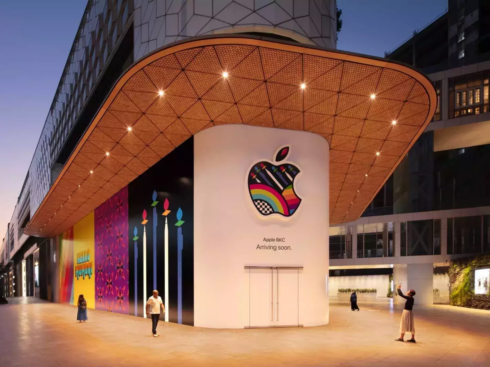And the downward spiral of damaging news for Uber continues this week, as well. This time, the company is in the news for engaging in a secret programme to evade law enforcement in certain markets. And that tool is Greyball – part of a programme called VTOS, short for “Violation of Terms of Service,” which Uber created to weed out people it thought were using or targeting its service improperly.
In a detailed report last week, The New York Times reported that, for years, it used a tool called Greyball to systematically deceive law enforcement officials in cities where its service violated regulations. What this simply means is that officials attempting to hail an Uber during a sting operation were “greyballed” – they would see icons of cars within the app navigating nearby, but no one would come pick them up. Occasionally, if a driver accidentally picked up someone tagged as an officer, the company called the driver with instructions to end the ride. The programme helped its drivers avoid being ticketed.
As per the report, Uber used these methods to evade authorities in cities like Boston, Paris and Las Vegas, and in countries like Australia, China and South Korea. The programme, began as early as 2014 and remains in use, predominantly outside the US and has been approved by Uber’s legal team.
Greyball allegedly uses data collected from the Uber app and other techniques to identify and mislead authorities.
The $69 Bn-valued Uber, meanwhile, has defended the programme in a statement saying, “This programme denies ride requests to users who are violating our terms of service — whether that’s people aiming to physically harm drivers, competitors looking to disrupt our operations, or opponents who collude with officials on secret ‘stings’ meant to entrap drivers.”
Geofencing Them Away
In using the app to identify and sidestep the authorities, one of the techniques employed was ‘geofencing.’ This involved drawing a digital perimeter, or “geofence,” around the government offices on a digital map of a city that Uber was monitoring. The company scrutinised which of these people were frequently opening and closing the app. They would also look at a user’s credit card information to determine if the card was tied directly to an institution like a police credit union.
If such clues did not confirm a user’s identity, its employees would search social media profiles and other information available online. If users were identified with having links to law enforcement, it blacklisted them by tagging them with a small piece of code that read “Greyball,” followed by a string of numbers.
NYT reported that enforcement officials involved in large-scale sting operations meant to catch Uber drivers would sometimes buy many cellphones to create different accounts. To counter that, Uber employees would even go to local electronics stores to look up the device numbers of the cheapest mobile phones for sale, which would most likely be the ones bought by city officials, working on tight budgets.
So, when someone tagged Greyball would try to hail an Uber, the company would show him a set of ghost cars in a fake version of the app or show that no cars were available. If, by chance, a driver did pick up someone tagged as an officer, Uber called the driver with instructions to end the ride.
Skirting With The Law
While Uber has tried to justify Greyball on the grounds of safety measures meant to protect drivers from taxi unions, competitors, and local transportation authorities, there is no denying the simple fact that it is dangerously skirting the law. This goes to show the extent to which the company is willing to go in order to dominate in its markets. As per the report, “At least, 50 people inside Uber knew about Greyball, and some had qualms about whether it was ethical or legal.”
Uber has faced massive protests in Paris, as well as regulatory challenges in South Korea and China. The service also faced regulatory challenges in India, where it was briefly banned in several cities. In May 2015, after rejecting the applications for license by Uber, Ola, and TaxiForSure, the Delhi Traffic Police had asked its officials to download their respective apps and book cabs so as to fine the driver and impound the car when it arrives. But even during the ban, cabs were reported to be plying, which means Greyball could have come to Uber’s rescue that time from regulatory authorities.
While CEO Travis Kalanick’s aggressive and brash strategy might have served Uber in its formative years, it looks like all the chickens are coming home to roost this year. The exposure of this questionable programme comes amidst the continuing fallout from allegations of sexual harassment and gender discrimination levied by a former employee, engineer Susan Fowler. Travis came under attack for promoting a misogynistic internal culture for which he apologised.
Uber’s Cup Of Woes Runneth Over
What further compounded matters was a video of Travis arguing with his own Uber driver surfaced, further raising questions over his leadership. To make matters worse was the ouster of Amit Singhal, who had joined Uber as SVP of Engineering in January 2017 over non-disclosure of prior sexual harassment allegations. Following Singhal is Ed Baker, Uber’s VP for Product and Growth, who resigned last week as per a report by Recode. While his resignation is reportedly not linked to Greyball, there are reports that it might have something to do with engaging in a sexual encounter with another employee at an Uber event.
To add to this, Keala Lusk, a former software engineer at Uber, revealed in a damning Medium blogpost how her last days at Uber, San Francisco were “filled with disrespect, condescending managers, and sexism.”
Following the leak of the video with driver Fawzi Kamel, Travis had admitted that,
“My job as your leader is to lead…and that starts with behaving in a way that makes us all proud. That is not what I did, and it cannot be explained away. It’s clear this video is a reflection of me—and the criticism we’ve received is a stark reminder that I must fundamentally change as a leader and grow up. This is the first time I’ve been willing to admit that I need leadership help and I intend to get it.”
As far as India is concerned, Travis’s personal failings is not the only reason which has kept the company and its charismatic CEO in the news. Uber drivers have staged protests in Hyderabad, Bengaluru, and Delhi over decreasing incentives. In Delhi, the government had to intervene before the strike was called off after 13 days.
To this end, Uber India Head Amit Jain tried to set the record straight through a blog post, where he clarified issues around driver earnings and incentives and reiterated Uber’s commitment to the driver community and India for the long term.
Amit stated that “driver earnings in India are attractive for the majority even after reductions in incentives and drivers’ costs are taken into account.” He also added that Uber was “watching carefully to ensure drivers do not get into difficulty with vehicle financing.” But if incentives dip and defaults rise, it is not long before India might also turn out to be yet another sticky wicket for Uber.
The Greyball controversy is just the latest in a series of incidents which point towards the failings of Uber’s cultural code and Travis’s personal falling as a leader. It would suffice to say that it is time he sought some real help to reinvent himself and the company – to silence his critics who holding his pugnacious attitude responsible for, what is probably, Uber’s worst year so far.



























